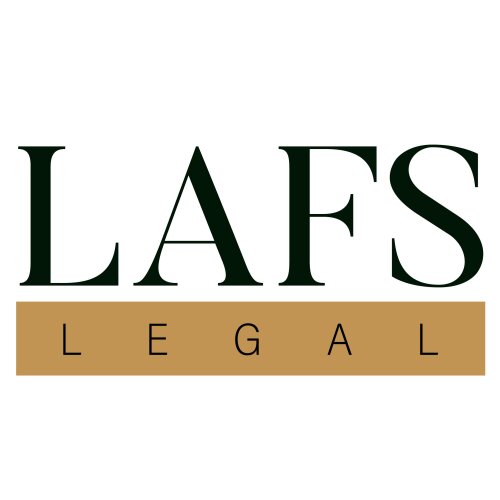Best Employment & Labor Lawyers in Bangkok
Share your needs with us, get contacted by law firms.
Free. Takes 2 min.
List of the best lawyers in Bangkok, Thailand
Legal guides written by Smart Legal Solutions:
- Main Legal Measures to Protect Foreign Investment in Thailand
- The importance of the geographical indications for the Thai economy
Legal guides written by Mahanakorn Partners Group Co., Ltd:
- Thailand Strengthens Anti-Money Laundering Laws with New Amendments
- Recent Updates to Thailand’s Long-Term Resident (LTR) Visa and SMART Visa Programs
- Managing Risks in Public-Private Partnership Projects
Thailand Employment & Labor Legal Articles
Browse our 3 legal articles about Employment & Labor in Thailand written by expert lawyers.
- Thailand Wrongful Dismissal: Fired Without Warning Guide
- Thailand is an employee-protective jurisdiction: most employees are covered by the Labour Protection Act and cannot be dismissed at will without correct procedure and payments. Written employment contracts are strongly recommended, but even informal or verbal arrangements can create full employee rights under Thai law. Key money items include minimum... Read more →
- Looking Ahead to Proposed Thai Labor Law Changes in 2025
- The Thai government is considering significant legislative reforms for 2025, with the goal of improving employee welfare and creating a more equitable labor market. Firstly, let’s take a brief look at Thailand’s current labor laws, then we will go into the potential future changes.What are the Current Labor Laws in... Read more →
- Thailand Employment Law: Essentials for Hiring and Retaining Talent
- In a world that is constantly changing, Thailand has become a very attractive place for companies who want to grow or start up in the lively South East Asia area. However, entering this beautiful landscape requires great knowledge of Thai employment laws which are a maze that can confuse even... Read more →
About Employment & Labor Law in Bangkok, Thailand
Employment and labor law in Bangkok, Thailand, is governed by a combination of statutory laws and regulatory guidelines designed to protect the rights of workers while ensuring fair practices for employers. The central piece of legislation is the Thai Labor Protection Act, which sets minimum standards for working conditions, employee benefits, and employer obligations. These laws apply to both local and foreign companies operating within the country, ensuring a balanced and equitable work environment.
Why You May Need a Lawyer
Engaging a lawyer specializing in employment and labor law can be crucial for various reasons. Common situations include:
- Unjust Termination: If an employee feels they have been wrongfully dismissed, legal assistance can help determine if labor laws have been violated and what compensation might be due.
- Contract Disputes: Issues regarding employment contracts, such as unclear terms or breach of agreement, often require legal interpretation and resolution.
- Workplace Discrimination or Harassment: Victims of discrimination or harassment may seek legal advice to understand their rights and take appropriate action.
- Non-Compliance with Labour Standards: Employees might need a lawyer to address cases where employers do not comply with statutory labor standards, such as working hours, wages, or benefits.
- Work Visa Issues for Foreign Employees: Navigating work permit regulations and ensuring compliance with immigration laws is another area where legal advice is beneficial.
Local Laws Overview
The Thai Labor Protection Act is the backbone of labor laws in Bangkok, establishing regulations around working hours, minimum wages, holidays, leave entitlements, and employee safety. Key points include:
- Working Hours: The standard working hours are set at 8 hours per day, totaling 48 hours per week.
- Minimum Wage: The minimum wage is adjusted periodically and can vary slightly by region, aimed at ensuring a basic standard of living for workers.
- Leave Entitlements: Employees are entitled to various forms of leave, including annual leave, sick leave, maternity leave, and public holidays.
- Termination and Severance Pay: Specific guidelines govern termination procedures and mandated severance payments based on the duration of employment.
- Workplace Safety: Employers must adhere to laws ensuring the safety and welfare of employees in the workplace.
Frequently Asked Questions
What is the standard probation period for new employees in Thailand?
The standard probation period is generally 119 days, during which either party can terminate employment with minimal notice.
Are employers required to provide overtime pay?
Yes, employers must compensate employees for overtime work at a higher rate, typically 1.5 times the normal wage.
What are the legal requirements for maternity leave?
Female employees are entitled to 98 days of maternity leave, a portion of which is paid by the employer and the remaining covered by social security.
How is severance pay determined in Thailand?
Severance pay varies based on the length of service, ranging from 30 days' pay for less than one year of service to 400 days' pay for 20 years or more.
Are employment contracts required to be in Thai?
While there is no strict requirement, it is advisable to have contracts in Thai or include a Thai translation to ensure clarity and compliance with local laws.
What constitutes unfair dismissal?
Unfair dismissal refers to termination without cause or due process, which can entitle the employee to compensation or reinstatement.
Can foreign workers be employed in any job position?
No, foreign workers are restricted to specific positions and must obtain the appropriate work permits and visas.
Are non-compete clauses enforceable in Thailand?
These clauses can be enforceable, but they must be reasonable in scope, duration, and geography to be upheld by Thai courts.
What are my rights if I face workplace discrimination?
Employees facing discrimination can file a complaint with the Labor Court or seek mediation through the Labor Department to resolve the issue.
How can labor disputes be resolved?
Labor disputes can be addressed through negotiation, mediation, or arbitration, and if unresolved, they may be taken to the Labor Court.
Additional Resources
For those seeking further assistance or information, consider reaching out to the following:
- Department of Labor Protection and Welfare: Provides guidance on employment rights and handling disputes.
- Thai Labor Court: Specializes in hearing cases related to employment disputes.
- Legal Aid Centers: Offer free or affordable legal advice and representation for employees.
- Ministry of Labor: Offers a range of resources and information for both employers and employees.
Next Steps
If you need legal assistance in employment and labor matters, start by clearly documenting any issues or disputes you are facing. Contact a qualified employment lawyer in Bangkok who can provide personalized advice and represent your interests. For immediate and urgent matters, reaching out to a legal aid organization can be a helpful step in understanding your rights and available courses of action.
Lawzana helps you find the best lawyers and law firms in Bangkok through a curated and pre-screened list of qualified legal professionals. Our platform offers rankings and detailed profiles of attorneys and law firms, allowing you to compare based on practice areas, including Employment & Labor, experience, and client feedback.
Each profile includes a description of the firm's areas of practice, client reviews, team members and partners, year of establishment, spoken languages, office locations, contact information, social media presence, and any published articles or resources. Most firms on our platform speak English and are experienced in both local and international legal matters.
Get a quote from top-rated law firms in Bangkok, Thailand — quickly, securely, and without unnecessary hassle.
Disclaimer:
The information provided on this page is for general informational purposes only and does not constitute legal advice. While we strive to ensure the accuracy and relevance of the content, legal information may change over time, and interpretations of the law can vary. You should always consult with a qualified legal professional for advice specific to your situation.
We disclaim all liability for actions taken or not taken based on the content of this page. If you believe any information is incorrect or outdated, please contact us, and we will review and update it where appropriate.
Browse employment & labor law firms by service in Bangkok, Thailand
Bangkok, Thailand Attorneys in related practice areas.
















